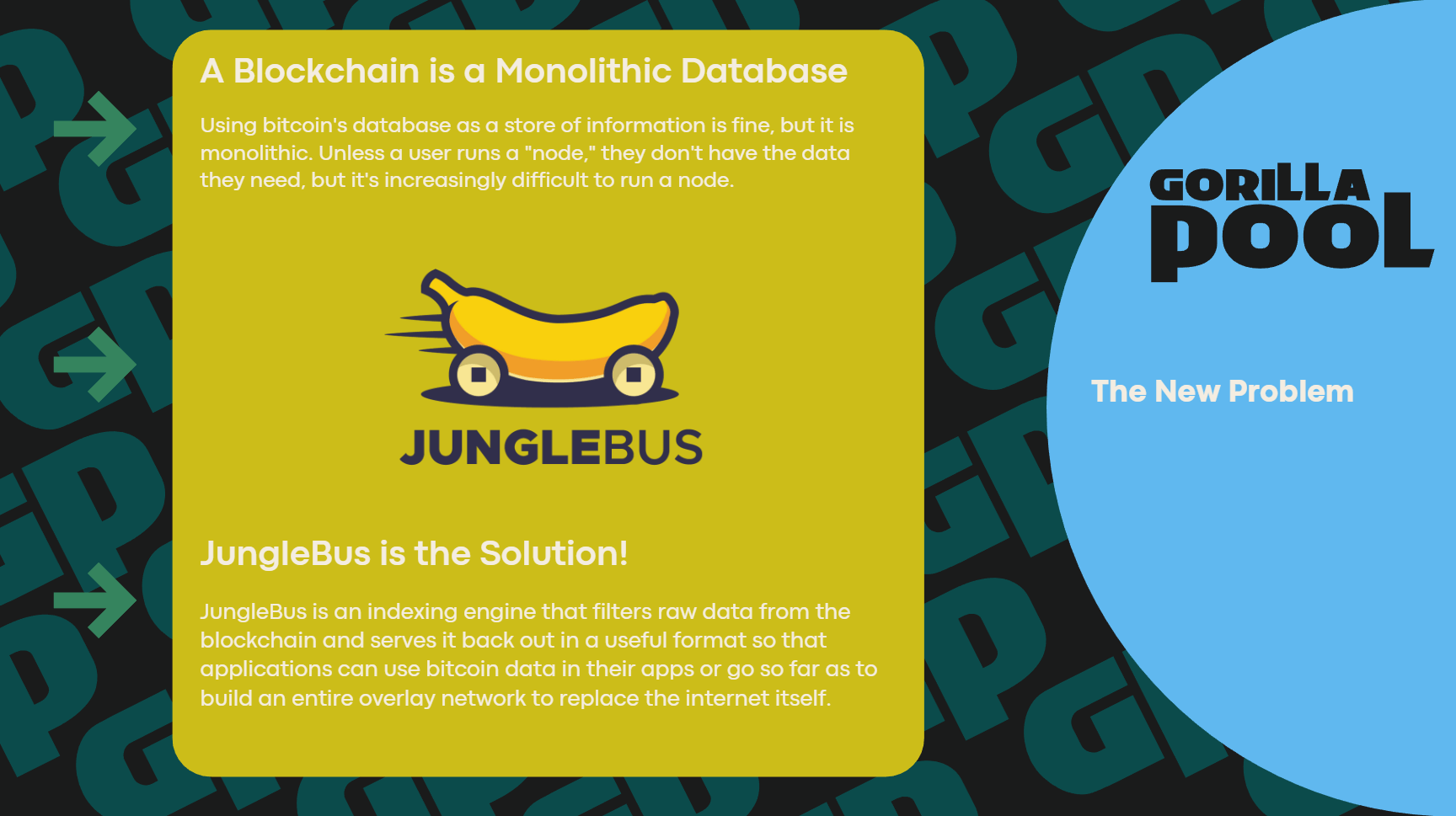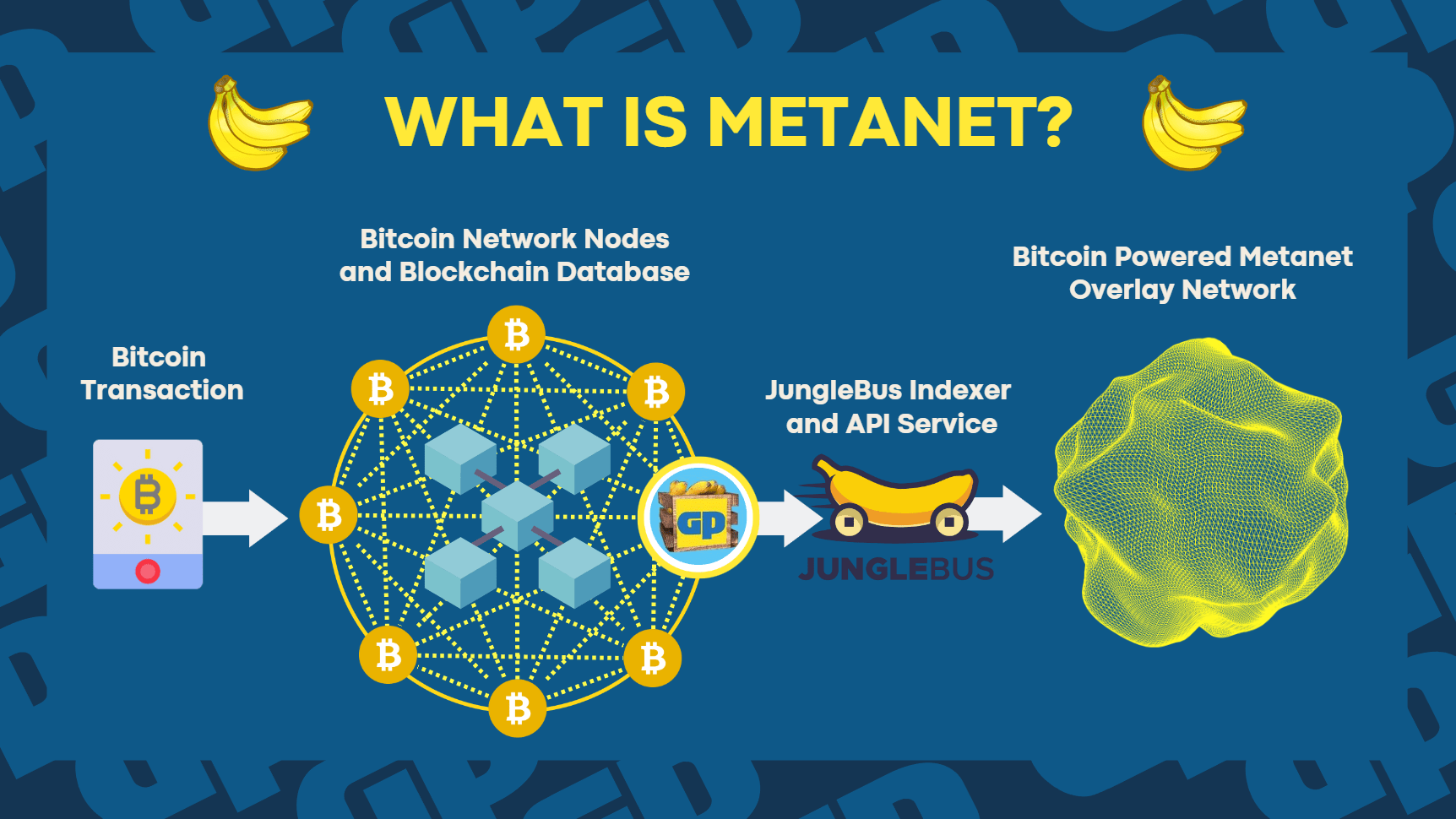How JungleBus Indexes Bitcoin’s ‘Internet of Value’: Workshop

Bitcoin is creating a new economy with the “Internet of Value” concept: monetizing data itself and returning power to users. As terabytes of new information pour into the network every hour, it’s time to start thinking about how data on the BSV blockchain can be filtered and searched. JungleBus, by GorillaPool, created the concept of the indexing subscription service. In a video workshop, Kurt Wuckert Jr. explains. and Luke Rohenaz why the world needs indexing so badly and how JungleBus can solve the problem.
Anyone who has looked in horror at their ever-growing digital photo portfolio can understand the need for a reliable indexer. Decades of photos, taken by the time it took, but with nothing to identify them other than the photo itself – looking for something specific can be a nightmare. Now imagine all the world’s data recorded and stored by timestamps alone – it’s neat, but useless without any sort of indexing and the ability to search using different parameters.
To explain JungleBus, you must first explain (the real) Bitcoin
JungleBus is an indexing engine that filters raw data from the blockchain and serves it back in a useful format so that applications can use Bitcoin data in their apps or go so far as to build an entire overlay network to replace the internet itself.
Did you get all that? It might sound a bit much at first. The workshop is aimed not only at existing Bitcoin users but also newcomers, so Wuckert spends the first segment explaining what Bitcoin is really about, the problems it can solve, and some basics about how it works.
“More than just a payment network or an investment opportunity, Bitcoin is the value of the Internet,” he says.

With Bitcoin, it is possible to create a worldwide peer-to-peer network capable of securing and transacting unique data items without the risk of “double-spending” or duplicates. Peer-to-peer is a more efficient way to scale the network than simply broadcasting all transactions to everyone, and proof-of-work (PoW) is the superior financial incentive model to keep all of this secure and reliable.
“There’s a brilliance to the power of communication, and Bitcoin is just financial communication. Bitcoin allows you to add value to every bit or byte of data that crosses the network,” notes Wuckert.
Data is becoming more valuable as it becomes more ubiquitous, and over a trillion megabytes of data is created globally every day. Right now, those profiting from this data proliferation are Silicon Valley megacorps and online service providers, who use the information users upload to increase their own wealth, power and influence (at the users’ expense).
In the case of networks like BTC, their participants have become too preoccupied with downstream issues such as libertarianism and speculative investment, which in turn has affected these networks’ development approach. Bitcoin (BSV), on the other hand, is more interested in creating new economies by monetizing data itself. It also returns ownership of this data to those who create and/or own it: the users.
However, blockchain does not magically solve all these problems by itself, and there are some shortcomings.
“The blockchain is just a giant bucket of unsorted data,” Wuckert says, or “a monolithic database.” And here is where JungleBus comes in. How do you index, categorize and identify the terabytes (or more) of new data Bitcoin’s transaction processors record on the network every day? How can you ever know what data is important and what can be ignored? How do we filter it, find out (for example) what data is payments, what is jpeg files or audio files, what is tokens or scripts, or personal and business records?
As a mining pool, GorillaPool runs some of the most powerful nodes in Bitcoin’s history. They operate in large data centers, with 10 GB connections, with the ability to process some of Bitcoin’s largest size blocks with the minimum possible latency.
Setting up and operating your own full node is quite challenging. It shouldn’t be necessary for an application developer to take on the role of infrastructure manager just to keep it running. After all, you don’t need to run your own ISP to build an application on today’s internet.
“JungleBus is essentially a piece of middleware that allows you to start up an overlay network out of just your (own) data,” shares Wuckert. It is an interface to identify and filter only data that is relevant to you and your project. Instead of verifying the entire world’s random data stream, you can verify just your own and confirm provenance as surely as if you checked everything. JungleBus indexes data directly from Bitcoin miners (transaction processors), which Wuckert calls “direct to the metal” and is more reliable and scalable than existing index databases that communicate through the providers’ servers.
JungleBus allows developers to set up their own companies and services for a handful of dollars, instead of the six-figure or more sums associated with trying to verify transactions on your own full node operation.
How does JungleBus work?
Luke Rohenaz then takes over leading the workshop to explain JungleBus’ inner workings and use cases more specifically.
“Where JungleBus really shines is with cross-platform interoperability,” he says. He explains that it acts as a back-end to the API that powers your applications and is not something you connect directly to the app itself. A single JungleBus subscription runs one app – users don’t need to use APIs to check data.
JungleBus performs the “deep inspection” on transaction output to identify and flag data/protocol types. From that analysis, it can create a feed that can categorize data of interest across several different services. Rohenaz demonstrates the currently supported data references or media types, which include BAP (Bitcoin Attestation Protocol), RUN, MAP, BITCOIN and B, among others. Subscribing users can configure their own dashboards with a selection of fields to monitor and only verify relevant transaction data.

JungleBus works in real-time and can even check data in mempool transactions (meaning even txs that have not yet been processed), and it also allows blockchain “re-orgs” and other errors. For developers, Rohenaz shows how to configure and code a subscription based on raw transaction data, using cross-service data like BitChat and BlockPost as examples.
Rohenaz describes all this as “a vast, open sea of opportunity for anyone who wants to build interoperable apps” and hints at an upcoming hackathon next month to explore new ideas. To initiate this, he suggests some possibilities. Watch Wuckert and Rohenaz’s workshop in the video above, and start thinking about exciting ways you’ll organize the world’s data.
See: Building on Blockchain – Common Challenges and Tools to Make it Easier
width=”562″ height=”315″ frameborder=”0″ allowfullscreen=”allowfullscreen”>
New to Bitcoin? Check out CoinGeeks Bitcoin for beginners section, the ultimate resource guide for learning more about Bitcoin – as originally envisioned by Satoshi Nakamoto – and blockchain.

























